MSW or Psychology: Which Pays More & Grows Faster?
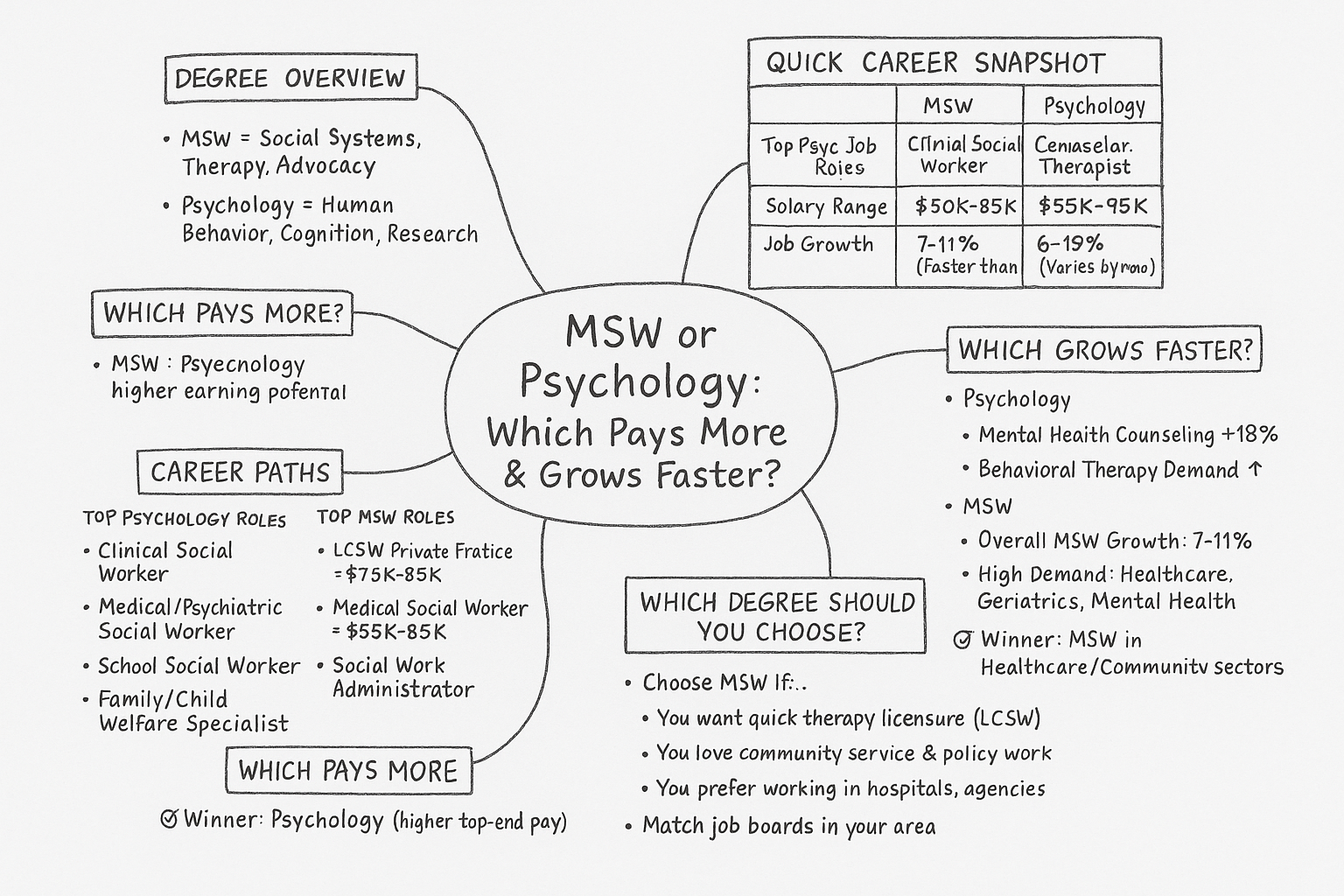
Choosing between a Master of Social Work (MSW) and a Master’s in Psychology can be tough—especially when both lead to rewarding careers in mental health and human services. If you’re asking yourself which path offers better pay, faster job growth, or aligns more with your personal mission, you’re not alone. This article breaks it all down, so you can make a smart decision for your future.
What’s the Difference Between MSW and Psychology Degrees?
Both degrees serve people—but in different ways.
An MSW (Master of Social Work) focuses on social systems, direct counseling, advocacy, and community outreach. Most MSW programs include field placements and prepare students for licensure like LCSW (Licensed Clinical Social Worker).
A Master’s in Psychology (MA or MS) dives into human behavior, cognition, and sometimes research. It’s ideal for those who want to work in behavioral health, research, or eventually pursue a PsyD or PhD to become a licensed psychologist.
MSW vs Psychology: Quick Career Snapshot
| Aspect | MSW (Master of Social Work) | Master’s in Psychology |
| Typical Job Titles | Clinical Social Worker, Case Manager | Counselor, Behavior Analyst, Therapist |
| Salary Range | $50K – $85K | $55K – $95K |
| Job Growth (2023–2033) | 7–11% (Faster than average) | 6–10% (Varies by role) |
| Work Settings | Schools, hospitals, clinics | Private practice, mental health centers |
| Licensing Path | LCSW (Licensed Clinical Social Worker) | LPC or LMFT (varies by state) |
Thinking beyond MSW alone? Compare MSW/MPH and MSW/JD programs here to see how they open up specialized careers in law and public health.”
Career Paths: Where Will Each Degree Take You?
Both degrees open doors—but lead to different types of jobs.
With an MSW, you can become:
- Clinical social worker (LCSW)
- Medical or psychiatric social worker
- School social worker
- Family or child welfare specialist
With a Psychology Master’s, you may become:
- Mental health counselor (with LPC or other license)
- Behavioral specialist
- Research assistant or analyst
- Case manager in psychology-based settings
Note: Psychology grads often need more school (PhD or PsyD) to become licensed psychologists, while MSWs can become licensed therapists with just their master’s degree (plus supervised hours).
Read Also: Clinical Social Worker vs Therapist: What’s the Difference?
Which Degree Pays More in 2025?
Salary can vary by location, experience, and licensure.
| Career Path | Role | Typical Salary Range |
| Psychology | Industrial-Organizational Psychologist | $100K+ |
| Licensed Clinical Psychologist | $85K–$120K | |
| Neuropsychologist | $100K+ | |
| MSW (Social Work) | LCSW in Private Practice | $75K–$95K |
| Medical Social Worker | $65K–$85K | |
| Social Work Administrator | $80K+ |
Psychology typically offers higher earning potential at the top end, especially in private sectors or specialized fields.
Suggested: Top 10 Reasons to Pursue an MSW Degree
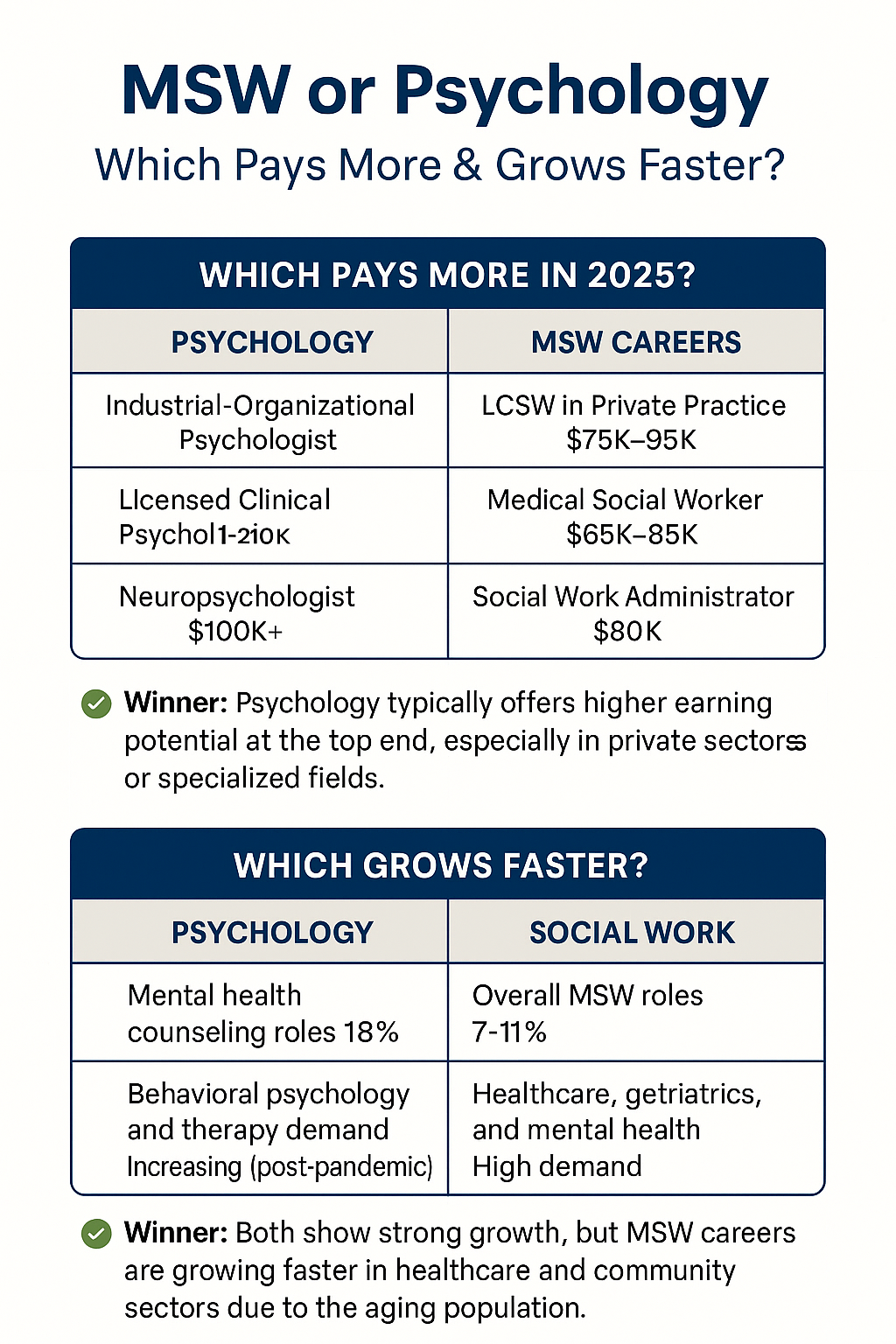
Job Growth: Which Field is Booming?
| Field | Area of Growth | Projected Growth Rate |
| Psychology | Mental health counseling roles | 18% |
| Behavioral psychology and therapy demand | Increasing (post-pandemic) | |
| Social Work (MSW) | Overall MSW roles | 7–11% |
| Healthcare, geriatrics, mental health | High demand |
There’s also a mental health workforce shortage in the U.S., which means more job openings for qualified professionals in both fields—especially in underserved areas.
Winner: Both fields show strong growth, but MSW careers are expanding faster in healthcare and community sectors due to the aging population.
Which Degree Should You Choose?
Here’s a simple way to decide:
| Choose MSW If… | Choose Psychology If… |
| You want to work in social services or policy change | You love research, behavior analysis, or theory |
| You want to become a therapist quickly (LCSW path) | You’re planning to pursue a PhD or PsyD |
| You value community work & advocacy | You’re interested in cognitive science or clinical studies |
| You want to work in hospitals, schools, or social agencies | You want to work in labs, mental health centers, or private practice (long-term) |
MSW vs LPC: Choose the Right Counseling Career for You
Final Thoughts: Your Future, Your Call
Whether you go for an MSW or a Psychology degree, you’re stepping into a career that makes a difference. If you’re more action-driven and want to help people through social systems or therapy, the MSW might be your match. If you’re curious about the science of behavior and willing to study longer, psychology might be your perfect path.
Tip: Talk to current students or professionals in each field, and look at job boards to see what aligns with your goals.

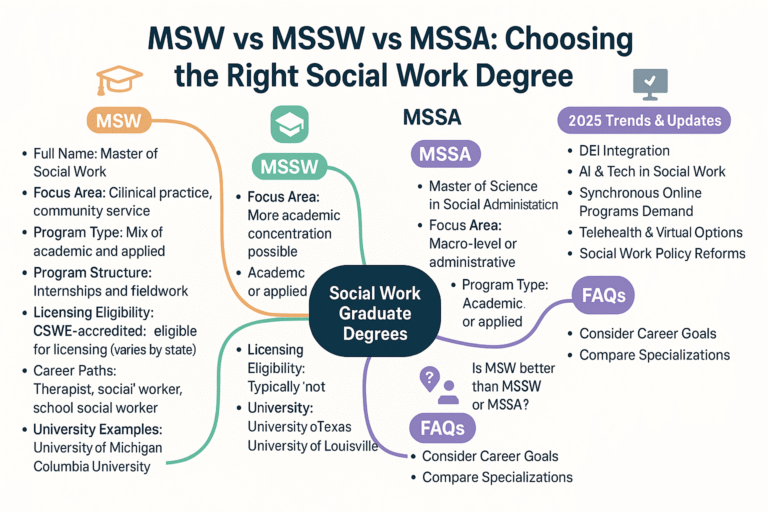
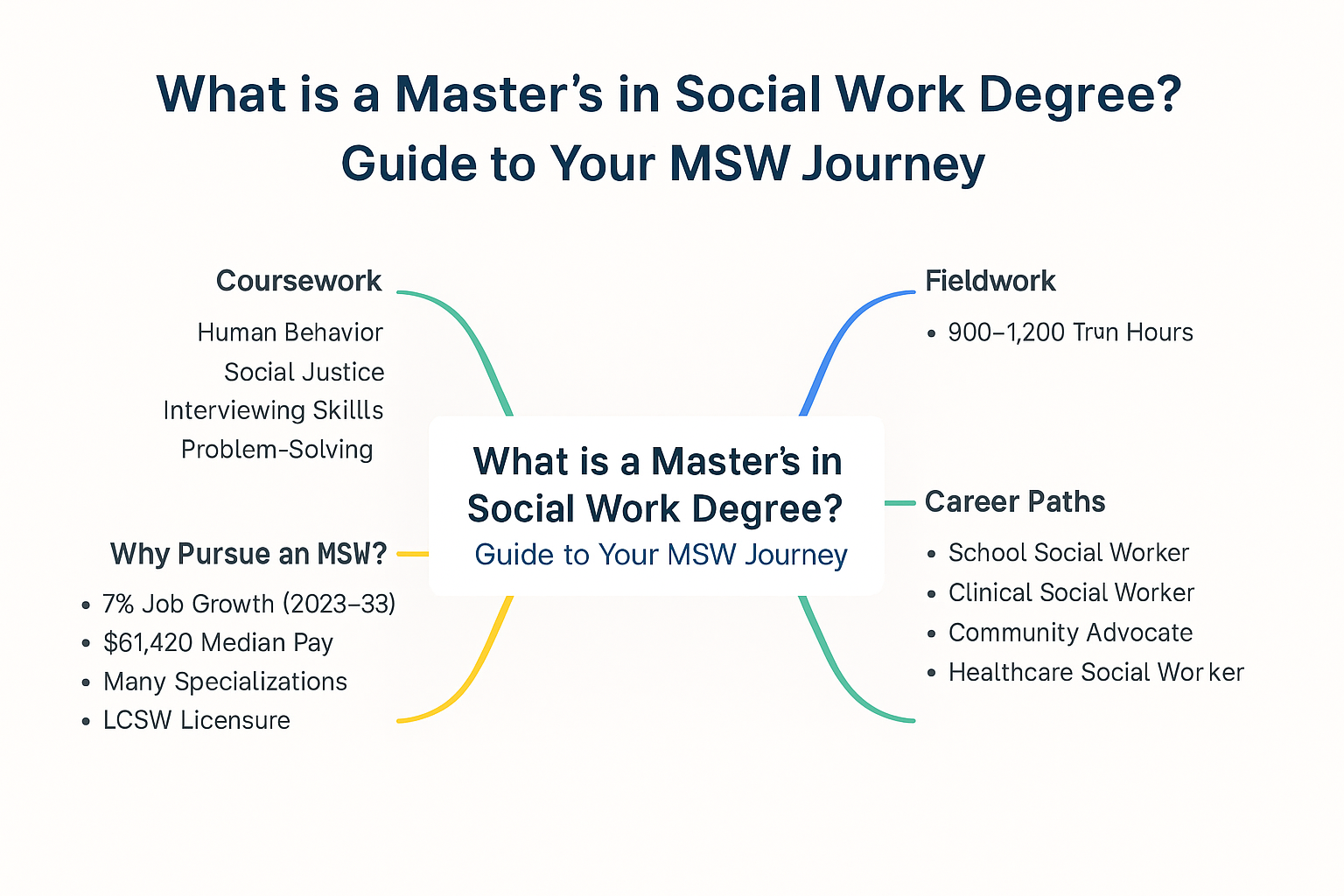

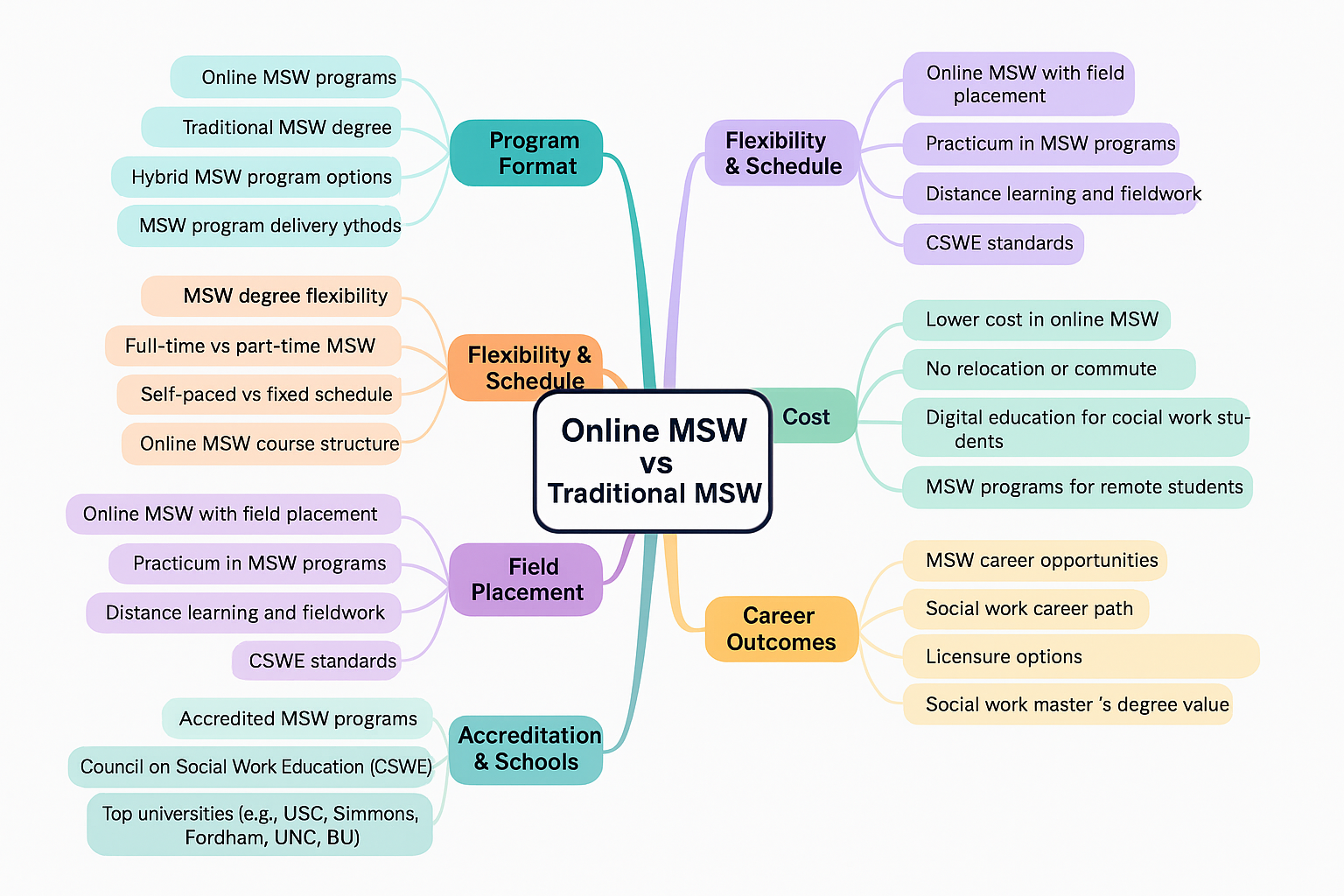

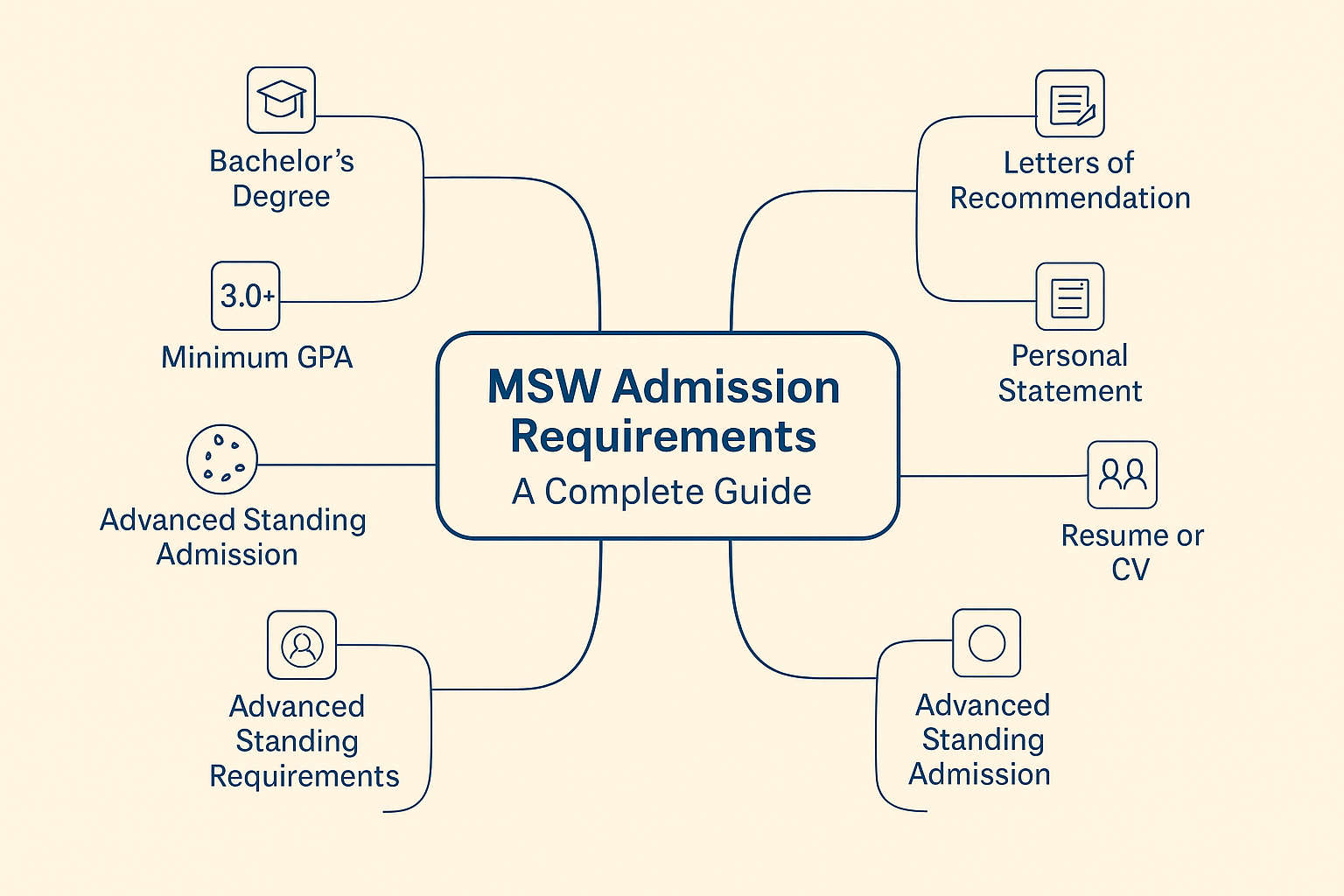
One Comment